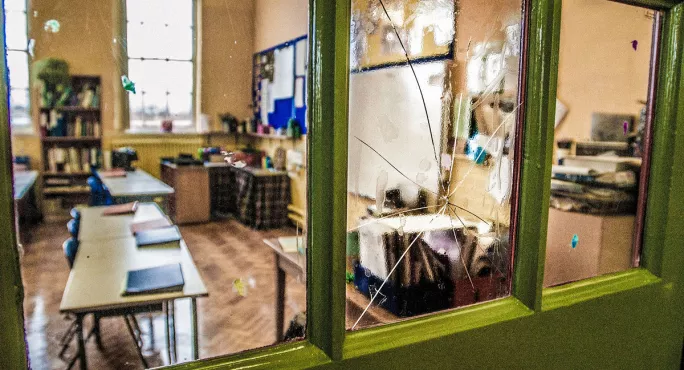Headteachers’ leaders have raised concerns about a rule change that they say shifts responsibility for the safety of school buildings further on to trusts.
The change, outlined in the 2024 Academy Trust Handbook, published today, comes as the safety of school buildings is under the spotlight, partly due to the crisis over the presence of reinforced autoclaved aerated concrete (RAAC).
The list of circumstances in which an academy trust can be issued with a Notice to Improve has been updated in the handbook to include “trustees and the executive failing to manage their school estate and maintain it in a safe working condition strategically and effectively”.
Sara Tanton, deputy director of policy at the Association of School and College Leaders, said the union is “concerned” about this addition.
“Many school buildings are not fit for purpose, and school budgets have been insufficient for trustees to build up reserves to complete large capital projects,” Ms Tanton said.
“It is disingenuous for the Department for Education to shift responsibility for this widespread issue on to individual trusts through the potential use of a Notice to Improve.”
More funding ‘needed for school buildings’
When trusts are issued with Notices to Improve, several specific transactions then require approval in advance from the Education and Skills Funding Agency (ESFA) - including GAG pooling, entering into guarantees, taking up any leaseholds and special severance payments.
If trusts do not comply with the Notice to Improve, their funding agreements can be terminated.
Leora Cruddas, chief executive of the Confederation of School Trusts, said that while trusts “absolutely” have the responsibility to maintain their estates, some large projects, such as dealing with RAAC, are beyond their current funding.
“For trusts to truly maintain estates ‘strategically and effectively’, we need significantly more funding support from government, and cautious, proportionate use of regulatory action,” she added.
A report from the National Audit Office last year estimated that around 700,000 pupils in England were attending schools requiring major repairs.
Unions and trusts have consistently been calling for an increase in capital funding.
Changes to trust handbook
Bigger trusts automatically receive school condition allocations, but smaller trusts have to bid for the Condition Improvement Fund, which has been funding fewer schools year-on-year for capital projects.
The previous government confirmed that 119 of the schools affected by RAAC would be funded for rebuilding under the School Rebuilding Programme. A further 110 are being provided with grant funding to pay for the removal of RAAC.
The latest changes to the handbook, effective from 1 September, are set out in a letter from ESFA chief executive David Withey to all trust accounting officers.
Other changes include trusts being able to take out finance leases without prior approval, an internal audit requirement coming in from next year and a pause in the position on electric vehicle salary sacrifice schemes.
The DfE has been contacted for comment.
For the latest education news and analysis delivered directly to your inbox every weekday morning, sign up to the Tes Daily newsletter




